| Listing 1 - 10 of 13 | << page >> |
Sort by
|
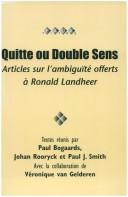
ISBN: 9042014466 9004485694 9789042014466 9789004485693 Year: 2001 Volume: 211 Publisher: Amsterdam Rodopi
Abstract | Keywords | Export | Availability | Bookmark
 Loading...
Loading...Choose an application
- Reference Manager
- EndNote
- RefWorks (Direct export to RefWorks)
Lexicology. Semantics --- French language --- Dutch language --- German language --- Sociolinguistics --- Ambiguity --- Ambiguïteit --- Ambiguïté --- Amphibologie --- Semantics --- Semantiek --- Sémantique --- Sémasiologie --- Équivoque --- Ambiguity. --- Semantics. --- Ambiguïteit in de letterkunde --- Lexicale ambiguïteit --- Ambiguïteit in de letterkunde. --- Lexicale ambiguïteit. --- Semantiek. --- Language --- Literature --- Synonymy
Multi
ISBN: 2867810949 9782867810947 Year: 1990 Publisher: Talence Presses universitaires de Bordeaux
Abstract | Keywords | Export | Availability | Bookmark
 Loading...
Loading...Choose an application
- Reference Manager
- EndNote
- RefWorks (Direct export to RefWorks)
Ambiguity in literature --- Ambiguïteit in de literatuur --- Ambiguïté dans la littérature --- Kairos (Grieks woord) --- Kairos (Mot grec) --- Kairos (The Greek word) --- Theses --- Pindar --- Criticism and interpretation
Book
ISBN: 9789089893734 Year: 2011 Publisher: Arnhem Terra Lannoo
Abstract | Keywords | Export | Availability | Bookmark
 Loading...
Loading...Choose an application
- Reference Manager
- EndNote
- RefWorks (Direct export to RefWorks)
De beste taal-tweets van twitteraar @Dubbelzinnig. Zijn tweets worden door ruim 16.000 volgers gelezen. Kwinkslagen, listigheden en gewiekste woordspelingen. Een begrip in Twitter-land. Voor de liefhebbers van Paulien Cornelisse, Jan Kuitenbrouwer, Ben van Balen en andere taalvirtuozen. Zijn tweets zijn te vinden op www.twitter.com/dubbelzinnig. Met cybercampagne. Kijk alvast eens op http://www.dubbelzinnig.com. Bron : http://www.boekenbank.be
Ambiguity --- Ambiguïteit --- Ambiguïté --- Amphibologie --- Équivoque --- Taalgebruik --- Taal --- Nederlands --- Sociale communicatie --- Dutch language --- Semantics --- Therapie --- Dialect --- Etymologie --- Fonetiek --- Idioom --- Zinsleer --- Linguïstiek --- Kleuter --- Geschiedenis --- Spraaktechnologie --- Vlaams --- Vlaanderen --- Emigratie
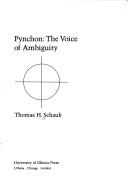
ISBN: 0252008162 Year: 1981 Publisher: Urbana University of Illinois press
Abstract | Keywords | Export | Availability | Bookmark
 Loading...
Loading...Choose an application
- Reference Manager
- EndNote
- RefWorks (Direct export to RefWorks)
Fiction --- American literature --- Pynchon, Thomas --- Ambiguity in literature --- Ambiguïteit in de literatuur --- Ambiguïté dans la littérature --- Ambiguity in literature. --- -Pinchon, Tomas --- Criticism and interpretation --- -Criticism and interpretation --- Ambiguïté dans la littérature --- Pinchon, Tomas --- Criticism and interpretation. --- Pynchon, Thomas.
Dissertation
Abstract | Keywords | Export | Availability | Bookmark
 Loading...
Loading...Choose an application
- Reference Manager
- EndNote
- RefWorks (Direct export to RefWorks)
Doelstellingen: Deze scriptie bestaat uit een deelvertaling van “Twee vrouwen” van Harry Mulisch en een vergelijking met de bestaande vertaling van Philippe Noble. Daarbij wordt op zoek gegaan naar (a) de belangrijkste verschillen tussen het Nederlands en het Frans in de uitdrukking van modaliteit, en (b) de impact van die verschillen op vertaling uit het Nederlands in het Frans. Verwacht wordt dat modale ambiguïteit tot vertaalproblemen zal leiden. Middelen of methode: Via een literatuurstudie wordt eerst de evolutie van het concept “modaliteit” geschetst, om zo tot een definitie en taxonomie te komen voor de rest van het onderzoek. Vervolgens worden beide talen met elkaar in contrast gebracht om de belangrijkste verschillen in de uitdrukking van modaliteit te identificeren. Die verschillen worden nader onderzocht met een vergelijkende analyse van de twee vertalingen. Resultaten: De drie belangrijkste verschillen bij vertaling uit het Nederlands in het Frans zijn “zullen”, schakeringspartikels en modale verkleinwoorden. De corpusanalyse bevestigt dat de vertaalproblemen voornamelijk draaien om de interpretatie van modale ambiguïteit, waardoor de vertaler verplicht is om subjectieve keuzes te maken. Hoewel het Frans over de middelen beschikt om vrijwel alle modale nuances van het Nederlands weer te geven, bleef toch ruim de helft van de schakeringspartikels en ruim twee derde van de modale verkleinwoorden onvertaald.
Ambiguïteit. --- H365-vertaalwetenschappen. --- H380-vergelijkende-linguïstiek. --- H460-franse-taal-en-letterkunde. --- H540-nederlandse-taal-en-letterkunde. --- Harry Mulisch. --- Interpretatie. --- Literair vertalen. --- Modaliteit. --- Schakeringspartikels. --- Twee vrouwen. --- Vergelijking met bestaande vertaling. --- Verkleinwoorden. --- Zullen.
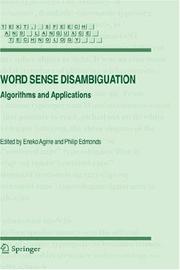
ISBN: 1402048084 1402068700 9786610625314 1280625317 1402048092 Year: 2006 Publisher: Dordrecht : Springer,
Abstract | Keywords | Export | Availability | Bookmark
 Loading...
Loading...Choose an application
- Reference Manager
- EndNote
- RefWorks (Direct export to RefWorks)
This is the first book to cover the entire topic of word sense disambiguation (WSD) including: all the major algorithms, techniques, performance measures, results, philosophical issues, and applications. Leading researchers in the field have contributed chapters that synthesize and provide an overview of past and state-of-the-art research across the field. The editors have carefully organized the chapters into sub-topics. Researchers and lecturers will learn about the full range of what has been done and where the field is headed. Developers will learn which technique(s) will apply to their particular application, how to build and evaluate systems, and what performance to expect. An accompanying Website (www.wsdbook.org) provides links to resources for WSD and a searchable index of the book.
Ambiguity --- Computational linguistics --- Natural language processing (Computer science) --- Semantics --- NLP (Computer science) --- Artificial intelligence --- Electronic data processing --- Human-computer interaction --- Semantic computing --- Automatic language processing --- Language and languages --- Language data processing --- Linguistics --- Natural language processing (Linguistics) --- Applied linguistics --- Cross-language information retrieval --- Mathematical linguistics --- Multilingual computing --- Grammar, Comparative and general --- Data processing --- Computerlinguïstiek. --- Natural language processing. --- Semantiek --- Woordbetekenis --- gegevensverwerking. --- ambiguïteit. --- Ambiguity. --- Computational linguistics. --- Data processing. --- Linguistics. --- Linguistics, general. --- Linguistic science --- Science of language --- Gegevensverwerking. --- Ambiguïteit.
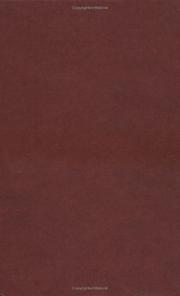
ISBN: 0521335329 0521061024 0511519362 0511828144 Year: 1988 Publisher: Cambridge : Cambridge University Press,
Abstract | Keywords | Export | Availability | Bookmark
 Loading...
Loading...Choose an application
- Reference Manager
- EndNote
- RefWorks (Direct export to RefWorks)
An original approach to four mainstream texts for the study of American literature and the novel in general. It examines the strangely equivocal nature of the vision with which each of them ends, with the central protagonists illogically clinging to their own transcendent image of selfhood.
Ambiguity in literature --- Ambiguïteit in de literatuur --- Ambiguïté dans la littérature --- Closure (Rhetoric) --- Conclusion (Rhétorique) --- Endings (Rhetoric) --- Last lines (Rhetoric) --- Peroratie --- Peroration --- Péroration --- Slot (Retoriek) --- American fiction --- Roman américain --- Conclusion (Littérature) --- History and criticism --- Histoire et critique --- Roman américain --- Conclusion (Littérature) --- Ambiguïté dans la littérature --- Hawthorne, Nathaniel --- Criticism and interpretation --- Twain, Mark --- James, Henry --- Fitzgerald, Francis Scott --- Melville, Herman --- Emerson, Ralph Waldo --- Arts and Humanities --- Literature --- Ambiguity in literature. --- History and criticism. --- Rhetoric
Book
ISBN: 8323303533 Year: 1990 Volume: vol 906 vol 93 Publisher: Krakow : Wydawnictwo uniwersytetu Jagiellonskiego = Jagiellonian University press,
Abstract | Keywords | Export | Availability | Bookmark
 Loading...
Loading...Choose an application
- Reference Manager
- EndNote
- RefWorks (Direct export to RefWorks)
Ambiguity --- Ambiguïteit --- Ambiguïté --- Amphibologie --- Britse humor --- Engelse humor --- English wit and humor --- Esprit et humour anglais --- Humor [Britse ] --- Humor [Engelse ] --- Humour anglais --- Humour britannique --- Ironie --- Irony --- Jeux de mots --- Metafoor --- Metaphor --- Mots d'esprits et jeux de mots --- Métaphore --- Parabole --- Play of words --- Play on words --- Plays on words --- Woordspelingen --- Word play --- Wordplay --- Équivoque --- Puns and punning. --- Langage et langues --- Semiotique --- Philosophie --- Philosophie du langage
Book
ISBN: 0226720101 Year: 1977 Publisher: Chicago London The University of Chicago Press
Abstract | Keywords | Export | Availability | Bookmark
 Loading...
Loading...Choose an application
- Reference Manager
- EndNote
- RefWorks (Direct export to RefWorks)
Ambiguity in literature --- Ambiguïteit in de literatuur --- Ambiguïté dans la littérature --- James, Henry, 1843-1916. Allegory and symbolism --- James, Henry, 1843-1916. The Figure in the Carpet --- James, Henry, 1843-1916. The Lesson of the Master --- James, Henry, 1843-1916. The Sacred Fount --- James, Henry, 1843-1916. The Turn of the Screw --- James, Henry, --- 82-31.09 --- Roman--?.09 --- James, Henry --- -Criticism and interpretation --- Ambiguity in literature. --- 82-31.09 Roman--?.09 --- Ambiguïté dans la littérature --- Criticism and interpretation. --- Criticism and interpretation --- Dzheĭms, G. --- Dzheĭms, Genri, --- Jeimsŭ, Henri, --- Джеймс, Генри, --- ג׳יימס, הנרי, --- ג׳ײמס, הנרי, --- Τζειος, Χενρι, --- جميس، هينري، --- جيمز، هنرى
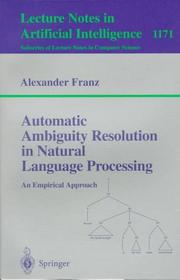
ISBN: 3540620044 3540495932 Year: 1996 Volume: 1171 *147 Publisher: Berlin [etc.] : Springer-Verlag,
Abstract | Keywords | Export | Availability | Bookmark
 Loading...
Loading...Choose an application
- Reference Manager
- EndNote
- RefWorks (Direct export to RefWorks)
This is an exciting time for Artificial Intelligence, and for Natural Language Processing in particular. Over the last five years or so, a newly revived spirit has gained prominence that promises to revitalize the whole field: the spirit of empiricism. This book introduces a new approach to the important NLP issue of automatic ambiguity resolution, based on statistical models of text. This approach is compared with previous work and proved to yield higher accuracy for natural language analysis. An effective implementation strategy is also described, which is directly useful for natural language analysis. The book is noteworthy for demonstrating a new empirical approach to NLP; it is essential reading for researchers in natural language processing or computational linguistics.
Ambiguity --- Ambiguïteit --- Ambiguïté --- Amphibologie --- Langue naturelle--Traitement des données (Informatique) --- Natural language processing (Computer science) --- Natuurlijke taal--Gegevensverwerking (Informatica) --- Équivoque --- Artificial intelligence. --- Computer simulation. --- Computer science. --- Statistics. --- Artificial Intelligence. --- Simulation and Modeling. --- Mathematical Logic and Formal Languages. --- Statistics for Social Sciences, Humanities, Law. --- Informatics --- Science --- Computer modeling --- Computer models --- Modeling, Computer --- Models, Computer --- Simulation, Computer --- Electromechanical analogies --- Mathematical models --- Simulation methods --- Model-integrated computing --- AI (Artificial intelligence) --- Artificial thinking --- Electronic brains --- Intellectronics --- Intelligence, Artificial --- Intelligent machines --- Machine intelligence --- Thinking, Artificial --- Bionics --- Cognitive science --- Digital computer simulation --- Electronic data processing --- Logic machines --- Machine theory --- Self-organizing systems --- Fifth generation computers --- Neural computers --- Statistical analysis --- Statistical data --- Statistical methods --- Statistical science --- Mathematics --- Econometrics
| Listing 1 - 10 of 13 | << page >> |
Sort by
|

 Search
Search Feedback
Feedback About UniCat
About UniCat  Help
Help News
News